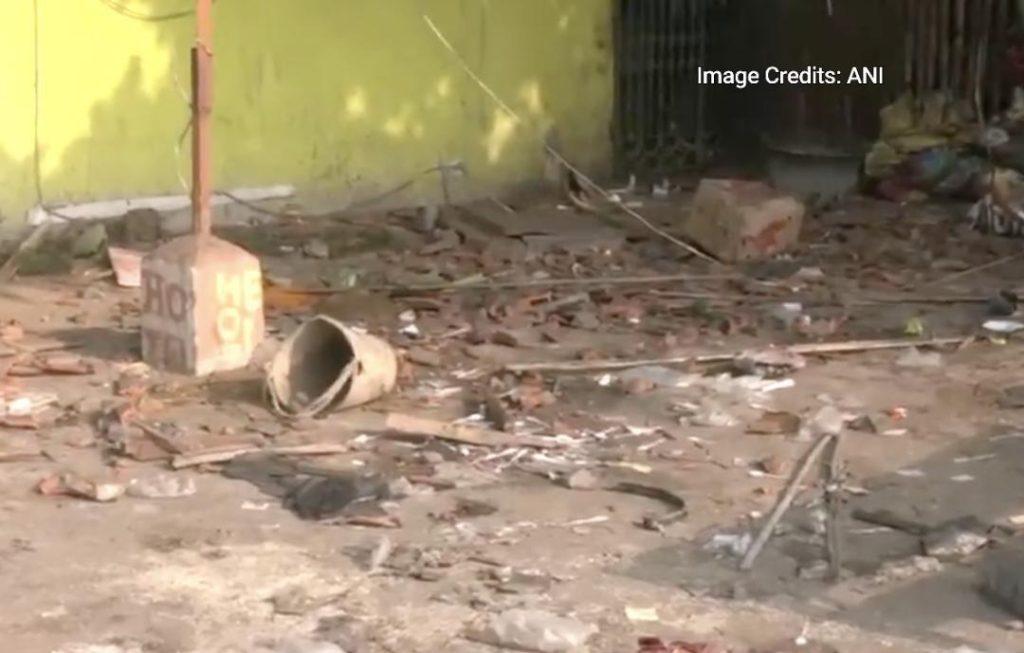
5,000 Disrupt Services & Pelt Stones at Bengal Railway Station During Protest Against Waqf Act
Tensions ran high in West Bengal as a large number of people gathered at the Dhulianganga railway station to protest against the Waqf Act. The agitation led to a disruption in train services, affecting the movement of the Kamakhya-Puri Express. According to reports, nearly 5,000 people participated in the protest, with the mob turning violent and pelted stones at the railway station.
The protests began around 1 pm, with the crowd growing in numbers as the day progressed. The protesters, who were opposed to the Waqf Act, allegedly gathered at the railway station to express their discontent. However, the situation quickly took a turn for the worse as the mob started pelting stones at the station.
A railway guard, who witnessed the chaos, described the scene as “complete mayhem”. According to him, the protesters arrived at the station around 1 pm and started causing trouble. “Many things were destroyed, and the signal couldn’t be passed,” he added, highlighting the severity of the situation.
The disruption in train services had a significant impact on the Kamakhya-Puri Express, which was affected by the protest. The train, which was scheduled to depart from the station, was delayed due to the agitation. This was not the only train affected, as other trains in the vicinity were also delayed or diverted to avoid the area.
The protest, which was reportedly peaceful initially, turned violent as the protesters became more agitated. The situation was further complicated by the lack of police presence at the station, which added to the chaos. The protesters, who were allegedly from various sections of society, were demanding the withdrawal of the Waqf Act, which they claimed was discriminatory towards a particular community.
The Waqf Act, which was passed in 1954, aims to regulate and manage properties that are dedicated to religious purposes. However, critics of the act claim that it has led to the erosion of traditional rights and privileges of a particular community. The protesters, who were largely from the same community, argued that the act was discriminatory and needed to be repealed.
The Eastern Railways, which operates the Kamakhya-Puri Express, condemned the violence and disruption caused by the protesters. In a statement, the railways said that they were working to restore normalcy to the services and were taking necessary steps to ensure the safety of passengers and staff.
The incident highlights the deep-seated tensions that exist in West Bengal over the Waqf Act. The protests, which have been ongoing for several months, have gained momentum in recent weeks, with many calling for the withdrawal of the act. The government, however, has maintained that the act is necessary to ensure the smooth management of religious properties and that it is not discriminatory towards any particular community.
As the situation continues to unfold, it remains to be seen how the government will address the demands of the protesters. Will they be able to find a solution that satisfies all parties involved, or will the tensions continue to simmer? Only time will tell.






